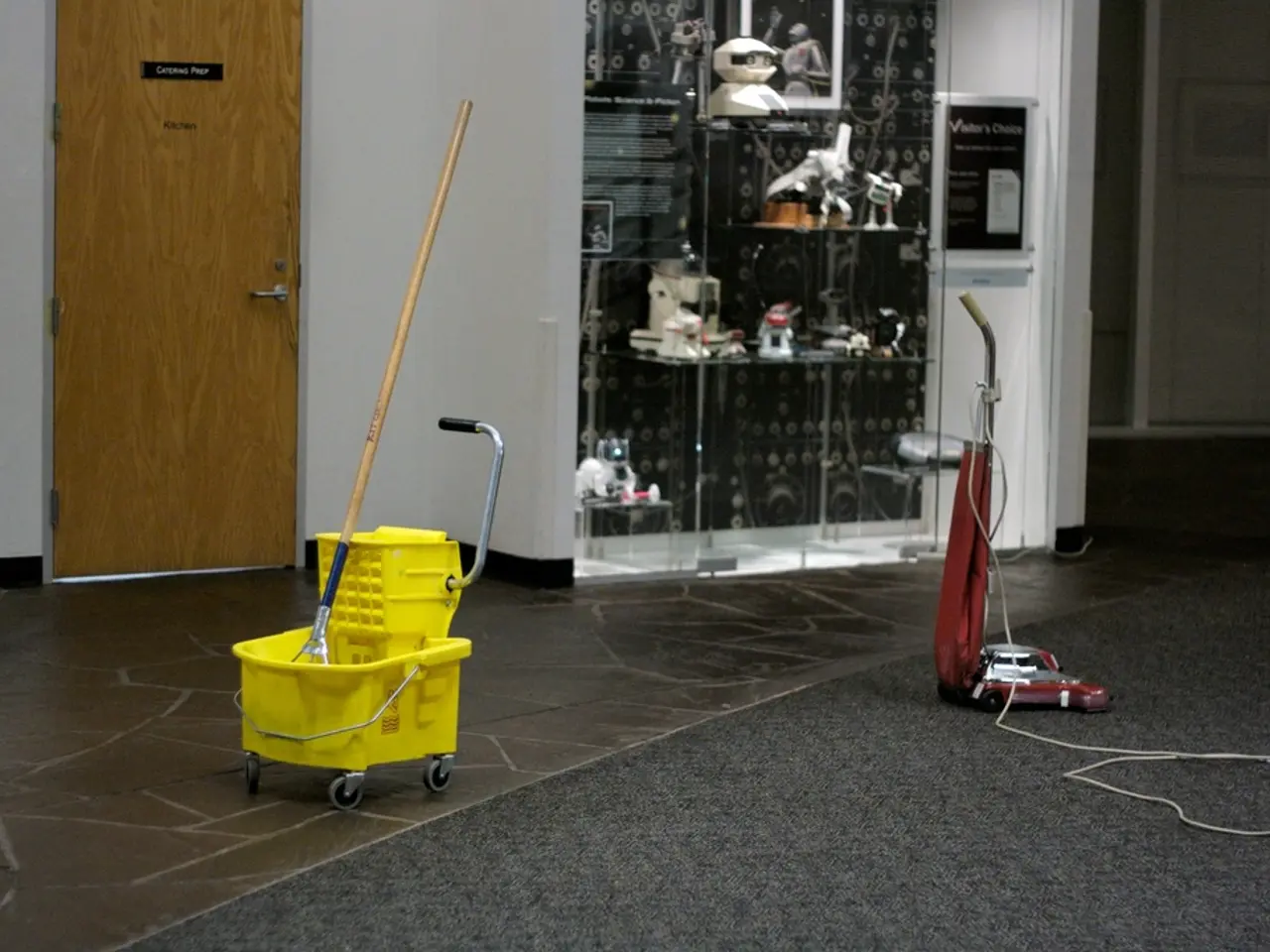Microsoft shifts focus from sales personnel to "solutions engineers" during recent downsizing, boosting Copilot AI amid ChatGPT's dominance in the enterprise industry.
## Microsoft Shifts Focus to Technical Sales for AI Tool Sales Boost
Microsoft is revolutionizing its sales strategy to bolster the sales of its AI tools, emphasizing technical expertise over traditional sales methods. This strategic move aims to position Microsoft as a "Frontier AI Firm," focusing on deep technical knowledge and hands-on AI solution experience [1][2].
### Key Elements of the Strategy
1. **Technical Sales Experts**: In a bid to better support customers integrating AI tools into their operations, Microsoft is replacing conventional salespeople with more technically skilled employees, often referred to as "solution engineers" internally. These experts combine sales and implementation skills, making them ideal for selling and implementing complex AI systems [1][3].
2. **Priorities of the Sales Organization**: Judson Althoff, Microsoft's sales chief, has outlined five key priorities for the sales organization: - **Copilot Integration**: The goal is to establish Copilot technology on every device and across every role, enhancing productivity and efficiency [2][3]. - **M365 and D365 Execution and Penetration**: Improving the sales and integration of Microsoft's business applications suites is a major focus [2]. - **AI Design Wins**: The development of successful AI solutions that cater to specific customer needs is a key priority [2]. - **Cloud Platform Growth**: Encouraging clients to move their workloads to Azure, Microsoft's cloud platform, to leverage its AI capabilities is another essential aspect [2]. - **Secure AI Transformation Foundation**: Ensuring that AI integration is secure and reliable is a critical component of the strategy [2].
3. **Investment in AI Infrastructure**: Microsoft is investing $80 billion in AI infrastructure for fiscal 2025, which includes expanding data centers and enhancing Azure's AI capabilities. This investment is vital for supporting large language models and tools like Copilot [4].
4. **Organizational Restructuring**: Microsoft is streamlining its sales organization by reducing the number of "solutions areas" from six to three: AI Business Solutions, Cloud & AI Platforms, and Security. This simplification aims to focus on core competencies and facilitate AI sales [3].
### The Impact of Technical Salespeople
Technical salespeople are integral to this strategy, providing the necessary expertise to guide customers through the technical deployment of AI solutions. They are essential for selling and implementing complex AI systems, ensuring that customers can effectively integrate these tools into their operations. This shift towards technical salespeople underscores Microsoft's recognition that AI sales require a deep understanding of technology rather than just traditional sales skills [1][3].
These changes reflect Microsoft's commitment to leveraging AI to drive growth and innovation, despite facing challenges in areas like Copilot sales and internal struggles with AI tools. The company continues to invest heavily in AI, with plans to hire more salespeople and use them beyond its headquarters, while also implementing a hiring freeze in its consulting business in the U.S. as part of broader cost-cutting measures [1][2][3]. The strategy also aims to address customer feedback regarding the daunting and lengthy sales process, with a focus on promoting technical and industry understanding among customers [1].
Recent layoffs at Microsoft, affecting around 9,000 employees, or about 4% of its workforce, have been part of this strategy to improve sales of AI tools, particularly in divisions such as Xbox and Azure [5]. Despite these changes, Microsoft's President of the Developer Division and GitHub, Julia Liuson, is pushing for the broad adoption of internal AI tools like GitHub Copilot across the company, considering AI as core to every role and every level at Microsoft [6].
- To boost the sales of its AI tools, Microsoft is shifting its focus towards technical sales experts, dubbed as solution engineers, who combine sales and implementation skills for complex AI systems.
- Judson Althoff, Microsoft's sales chief, has outlined five key priorities for the sales organization, including Copilot integration on every device, enhancing productivity and efficiency.
- Microsoft is investing $80 billion in AI infrastructure for fiscal 2025, aiming to expand data centers and enhance Azure's AI capabilities, crucial for supporting large language models and tools like Copilot.
- The company is streamlining its sales organization by reducing the number of solutions areas from six to three: AI Business Solutions, Cloud & AI Platforms, and Security, focusing on core competencies and facilitating AI sales.
- Technical salespeople are essential for Microsoft, providing the necessary expertise to guide customers through the technical deployment of AI solutions, underscoring the recognition that AI sales require a deep understanding of technology.
- Despite recent layoffs, Microsoft is committed to leveraging AI for growth and innovation, pushing for the broad adoption of internal AI tools like GitHub Copilot across the company, considering AI as core to every role and every level at Microsoft.




